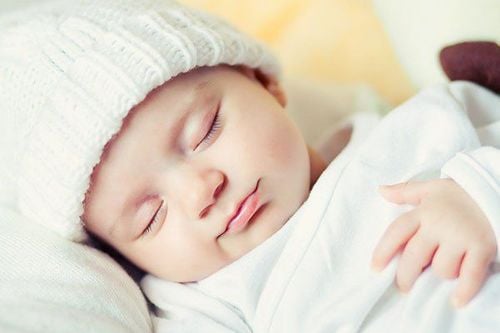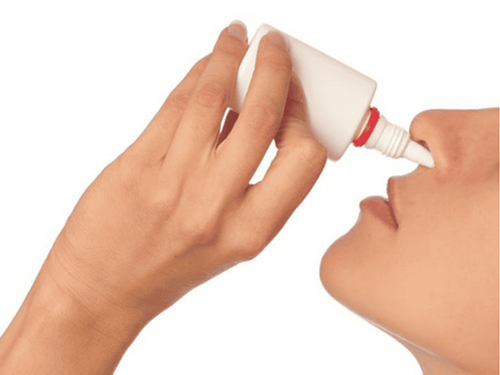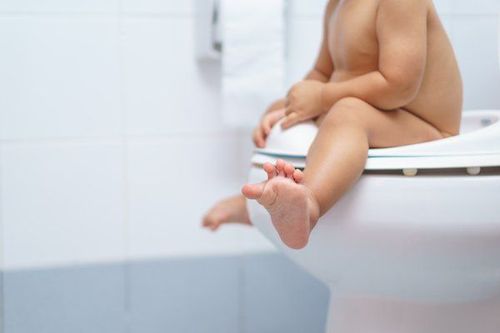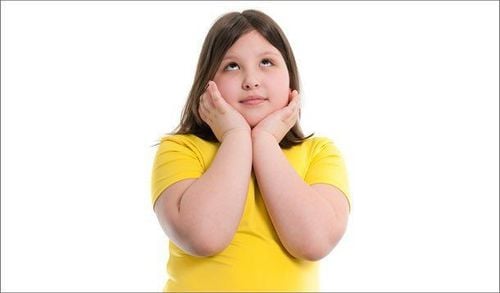This is an automatically translated article.
The article was professionally consulted by Associate Professor, Doctor, Doctor Huynh Thoai Loan - Department of Pediatrics - Neonatology, Vinmec Central Park International General Hospital.When the weather changes, due to the immature immune system, children often get bronchitis with symptoms such as cough, runny nose and difficulty breathing. Children with bronchitis are usually not too dangerous, but if not monitored and treated promptly, it can cause pneumonia, respiratory failure, and even death.
1. Which children are more susceptible to bronchitis than other children?
1.1. Children are obese
Several studies have shown that a high body mass index (BMI) is associated with bronchitis. There is an increased risk of developing bronchitis in overweight and obese adolescents. This is due to reduced respiratory function and airflow limitation that can be caused by excess body weight. Therefore, maintaining an appropriate weight is one of the ways to reduce the risk of bronchitis in children.1.2.Children with respiratory allergies to pollen, house dust, animal dander
Children with atopy have increased bronchial reactivity, especially when exposed to allergenic factors. Therefore, children are more susceptible to bronchitis than other children in the same living conditions.1.3. Children are often exposed to secondhand smoke
Tobacco smoke contains about 4000 harmful substances. They cause inflammation of the hair cells that move the airways. Especially in children, if they inhale tobacco smoke early and often, they are at risk of chronic bronchitis.1.4. Children living in homes with high humidity and mold
Crowded habitats with high humidity are favorable factors for mold growth. Children living in such an environment will be at high risk of respiratory diseases, especially bronchitis.Trắc nghiệm: Nhận biết sớm dấu hiệu chậm phát triển thể chất và trí tuệ ở trẻ
Nếu 6 tuổi không biết đếm số, 7 tuổi vẫn chưa phân biệt được giữa thực tế và tưởng tượng thì có thể bé chậm phát triển thể chất và trí tuệ hơn so với bạn bè cùng lứa. Bạn đã nhận biết được các dấu hiệu bất thường sớm này chưa? Cùng làm nhanh bài trắc nghiệm sau để trang bị thêm kiến thức cho mình nhé!
The following content is prepared under supervision of Thạc sĩ, Bác sĩ y khoa, Ma Văn Thấm , Nhi , Phòng khám Đa khoa Quốc tế Vinmec Dương Đông(Phú Quốc)
2. Signs that a child has bronchitis
2.1. Manifestations at the onset of
Children play poorly, eat poorly due to stuffy nose, runny nose, dry cough or cough with phlegm, difficulty breathing. The child may have a low-grade fever or diarrhea.2.2. Manifestations in full-blown stage
Usually the 3rd day after the onset of the disease, the child has a high fever, the temperature is between 38 - 40 degrees Celsius, accompanied by a lot of cough, cough with green or yellow sputum. The child wheezes, which may be difficult to breathe.Children cough a lot which can lead to vomiting.
3. Children with bronchitis: When to see a doctor right away?
3.1. Child has difficulty breathing, cyanosis
Parents or relatives can easily assess the child's shortness of breath by counting the breaths when the child is still or asleep within 1 minute, it is recommended to count 2-3 times. According to the standards of the World Health Organization (WHO), the child's level of tachypnea is calculated as follows:Children under 2 months old: Breathing rate from 60 times/minute. Children 2 months - 12 months old: Breathing rate is 50 breaths/minute or more. Children from 1 to 5 years old: Breathing rate from 40 times/minute or more.
3.2. High fever
Children with fever ≥ 39 degrees C, unresponsive to antipyretics or convulsions.3.3. Cough, lethargic, quit feeding
The child has a cough that does not stop. During a cough, the child turns red in the face (whooping cough). Children are sleepy and difficult to wake up. The baby may refuse to breastfeed.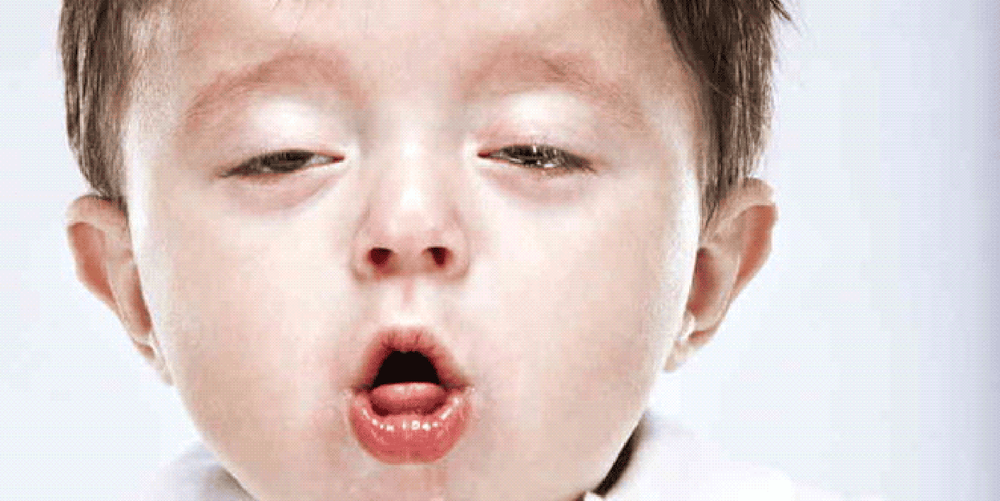
4. Is it possible to definitively treat bronchitis in children?
Children with bronchitis can go away on their own if treated early and properly. Parents need to take care of their children right from the start of the first symptoms to completely cure the disease, by:Keep the child warm by giving them warm water to drink. Clean the child's nose with 0.9% physiological saline in the form of nasal drops. Reduce a child's fever by applying warm compresses all over the body. Proper warmth can cause a baby's body temperature to drop by up to 1°C. Take paracetamol fever reducer when the child's temperature is ≥ 38.5 degrees Celsius according to the doctor's instructions. Your doctor may prescribe an expectorant such as N-acetylcysteine, which helps your child cough to push the phlegm out of the airways more easily. The disease is mainly caused by a virus, so antibiotics are often ineffective. Use antibiotics only when prescribed by your doctor.
5. Children with bronchitis should eat what?
According to the recommendations of the National Institute of Nutrition, taking care of children with bronchitis should pay special attention to nutrition. At this time, the child's body is weak, exhausted, easily dehydrated, and needs to be supplemented with appropriate food and nutrients for the child to recover quickly.Food that children with bronchitis should eat:
Increase shrimp, fish, green vegetables, healthy fats (salmon,...). Give children plenty of filtered water, supplement with oresol to compensate for electrolytes (for children with high fever, diarrhea),... Food children with bronchitis should avoid:
Foods/foods with a lot of sugar. Carbonated soft drinks (may make diarrhea worse). Avoid foods high in fiber, low in nutrition, difficult to digest (whole starch, ...). Principles of cooking/eating:
Should eat many meals, each meal is not too much. Food should be processed in soft, thin form (porridge, water, flour,...) for easy digestion.

6. Prevention of bronchitis in children
Keep children warm, keep their living environment clean by regularly cleaning the house, changing clean blankets. For children who have been allergic to pollen, dog and cat hair, house dust mites, ..., it is necessary to limit exposure to the above agents. Limit children's exposure to dust, tobacco smoke, etc. Actively isolate from adults or other children who are suffering from respiratory diseases. Vaccinate children against diseases such as pneumococcal vaccine, Haemophilus influenza vaccine,... Children with bronchitis can recover on their own if detected early and their parents handle them properly. However, the disease can also be severe, causing serious consequences for children. Parents need to know the serious signs of illness to take their children to the hospital, where the doctor can examine and treat the child in the best and most comprehensive way.Pediatrics Department at Vinmec International General Hospital is the address to receive and examine diseases that infants and young children are susceptible to: viral fever, bacterial fever, otitis media, pneumonia in children, ... With modern equipment, sterile space, minimizing the impact as well as the risk of disease spread. Along with that is the dedication from the doctors with professional experience with pediatric patients, making the examination no longer a concern of the parents.
Please dial HOTLINE for more information or register for an appointment HERE. Download MyVinmec app to make appointments faster and to manage your bookings easily.






